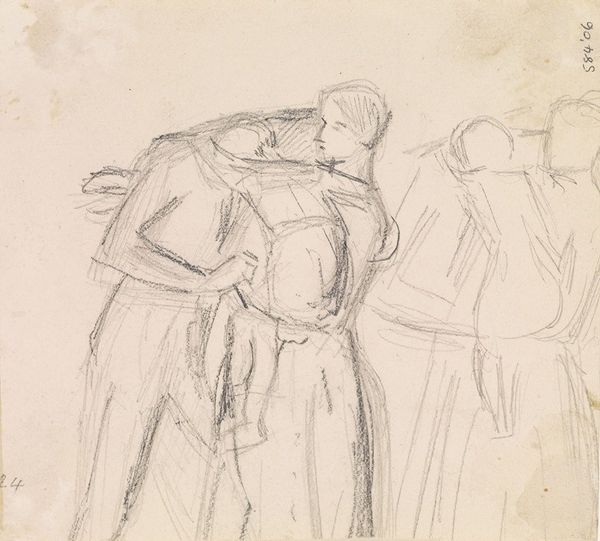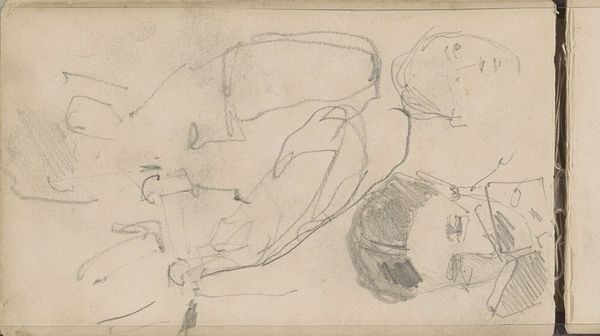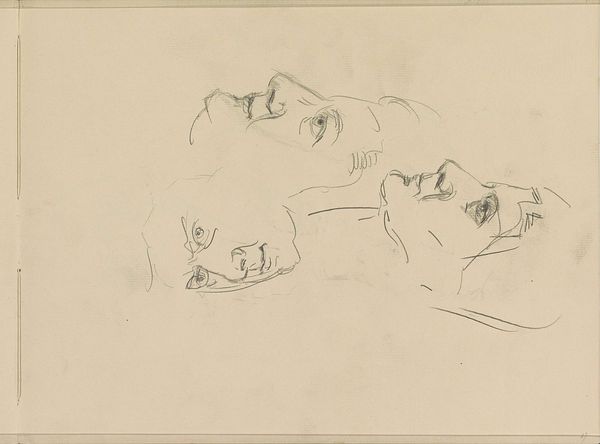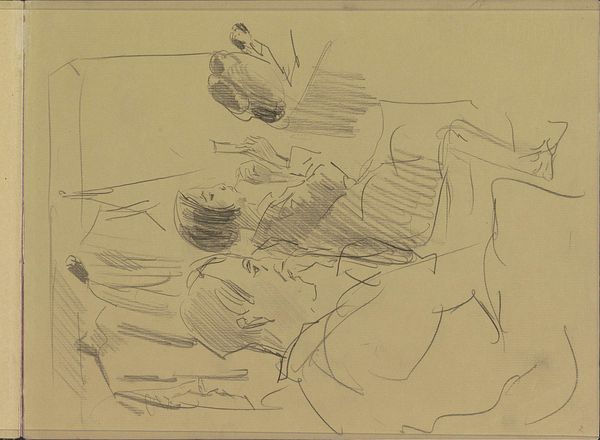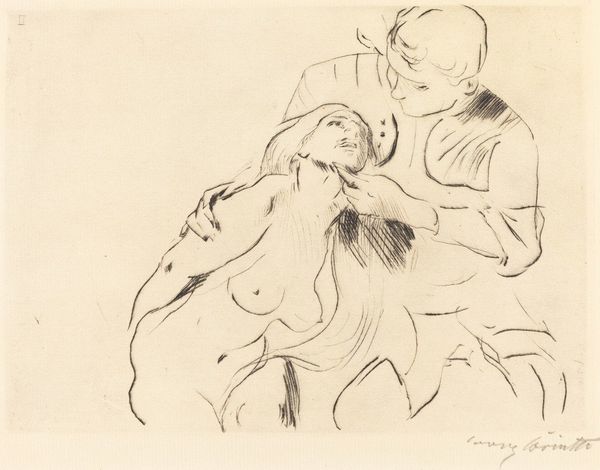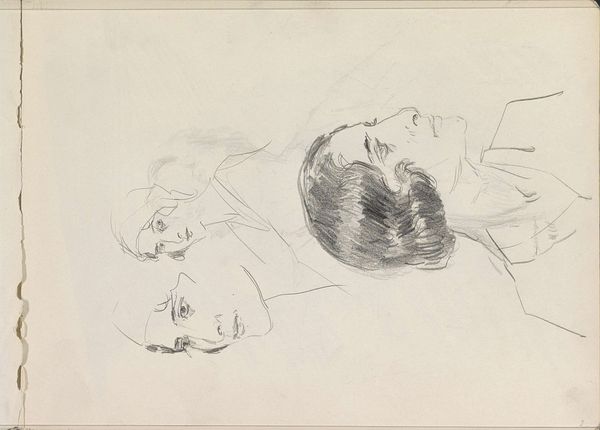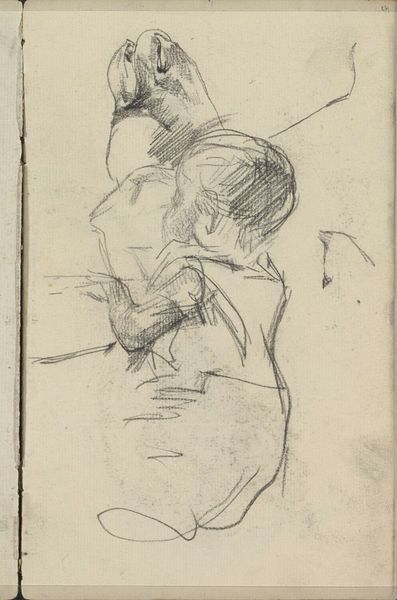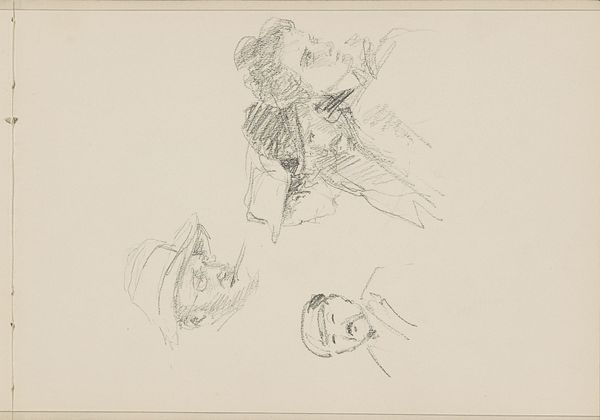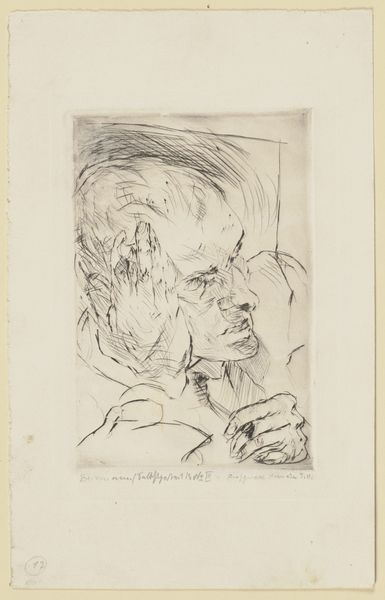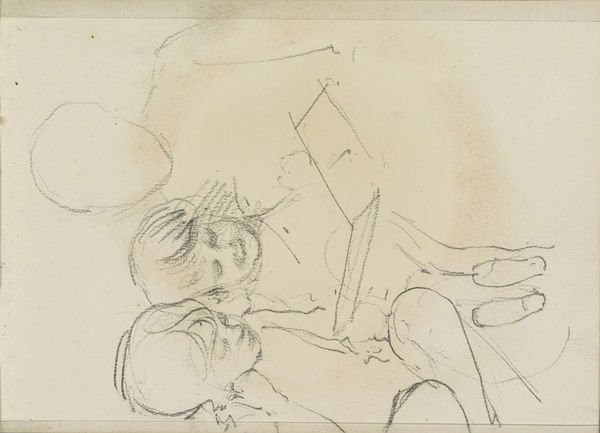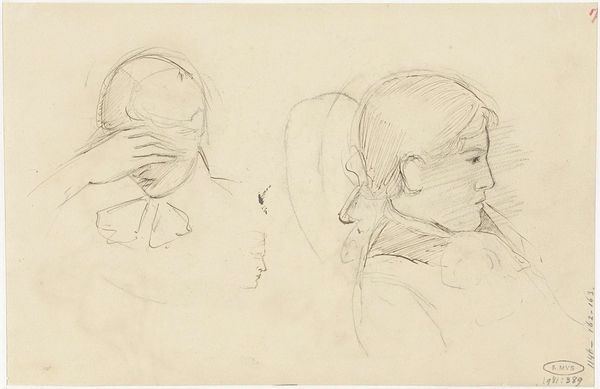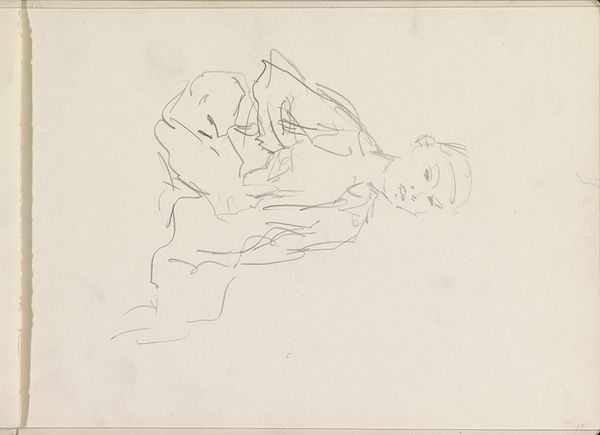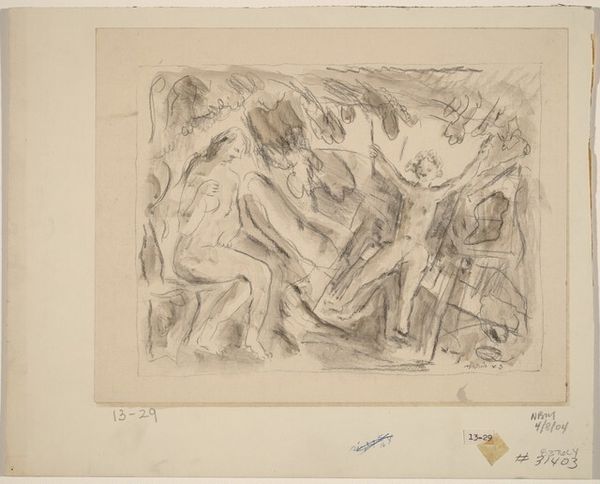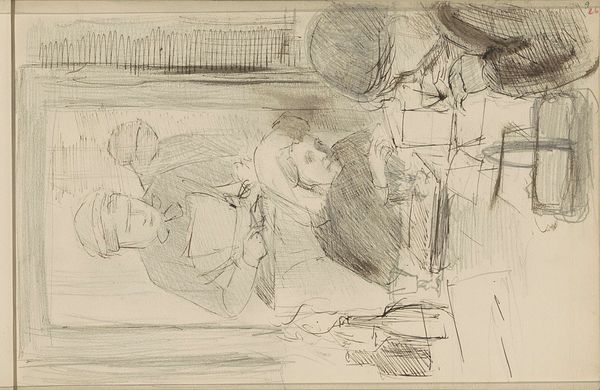
drawing, paper, pencil
#
portrait
#
drawing
#
amateur sketch
#
toned paper
#
light pencil work
#
pencil sketch
#
figuration
#
paper
#
personal sketchbook
#
pencil drawing
#
pencil
#
sketchbook drawing
#
portrait drawing
#
pencil work
#
sketchbook art
Dimensions: height 276 mm, width 311 mm
Copyright: Rijks Museum: Open Domain
Curator: This pencil drawing, entitled "Kinderen in de schoolbank," or "Children at school desks," is attributed to Carel Adolph Lion Cachet, and thought to originate somewhere between 1874 and 1945. It is currently held at the Rijksmuseum. What are your initial impressions? Editor: The drawing's sketch-like quality, executed on toned paper, lends it a sense of intimacy and immediacy. The subject matter suggests a story, doesn't it? I feel the weight of the school system's expectations through their postures. Curator: Exactly. Looking closely, we can see Cachet's light pencil work creates a wonderful depth, given the spartan materials. Notice how he's captured the light reflecting on the children's heads, especially. We are dealing with simple pencil on paper, but it’s how he coaxes that tonal variation. Editor: I agree, the variation really gives life to the sketch. Considering the historical context, school for children was becoming more widely accessible, but simultaneously compulsory. Who did these new pedagogical practices include, and who did they exclude? Was the artist considering the labor being formed? Curator: That’s certainly one reading. I think too we can think of the education systems, particularly in the late 19th and early 20th century, as being a site of both labor and control. And we see this through other sketches too that explore industrial practices as well, connecting the children to these larger networks. Editor: That makes me consider it as a study of the dynamics between individuality and conformity, especially observing the small differences in how each child holds themselves, alongside the more blurred figures that resemble something closer to a crowd. It brings forth the many discussions within feminist pedagogy about who these institutions of learning are really meant to serve. Curator: A fascinating intersection! It’s intriguing how much information can be conveyed with such minimal means. The focus on the labor of education really pulls at a variety of perspectives. Editor: Agreed, it invites a continued questioning and deeper understanding, challenging our modern expectations and assumptions.
Comments
No comments
Be the first to comment and join the conversation on the ultimate creative platform.
